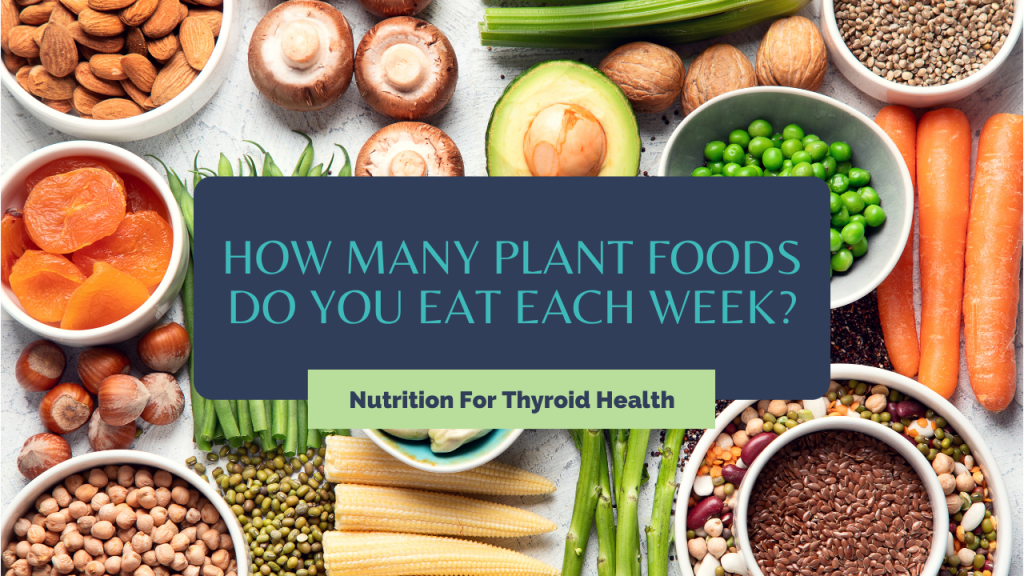How Many Plant Foods Do You Eat Each Week?
Eating plant foods is essential for a healthy diet. It’s not only important to take in adequate amounts of plant-based nutrition, but also to choose the right kind of plants. With an increasing number of people suffering from digestive problems and chronic diseases, eating more plant-based foods has become a priority for many health-conscious individuals.
But how many plant foods are you actually eating each week? There’s no one-size-fits-all answer as some people need more plants than others due to their age or lifestyle factors. However, everyone should prioritize eating plenty of nutrient-dense plant foods for maximum benefit. In this blog post, we’ll explore the importance of getting enough plant foods in your diet and provide tips for adding them to your meals.
Why Are Plant Foods Good for You?
Plant foods are full of vitamins, minerals and antioxidants which are beneficial for overall health; they provide energy without the calories found in animal proteins; and they supply dietary fiber which helps keep us regular as well as aiding digestion.
Different types of plants provide different types of nutrition, so it’s important to eat a variety. Leafy greens and cruciferous vegetables are great sources of vitamin A and C, while legumes offer protein and complex carbohydrates. Fruits like berries, apples, oranges and bananas are all high in antioxidants that fight inflammation and disease.
How it Impacts Your Gut Health
Eating enough plant-based foods can have a huge impact on gut health. Plant-based diets have been linked to improved digestion and regularity as well as a reduced risk of colon cancer. Additionally, the dietary fiber found in plants helps feed our ‘good’ gut bacteria which helps keep our microbiome healthy.
Finally, eating more plant-based foods is associated with a reduced risk of chronic diseases like diabetes, heart disease and stroke. Eating plants can also help reduce inflammation, which has been linked to a wide range of health conditions.
Recommendations
It’s recommended that you eat at least five servings of plant-based foods each day. This could include leafy greens, cruciferous vegetables, legumes, fruits and nuts or seeds. Try to mix it up and explore different varieties, as this will ensure you get maximum benefit from the nutrients found in plants.
Getting started on your journey towards eating more plant-based foods doesn’t have to be difficult. Start by adding one new vegetable to your grocery list each week until you’re eating five servings of plants each day. You can also experiment with different recipes or try out some vegetarian meals a few times per week.
Eating more plant-based foods is essential for optimal health and wellness. Start by assessing your current diet to see how many plants you’re consuming each week and make the necessary adjustments from there. With the variety of plant-based foods available, it’s easy to find delicious ways to add these nutrient dense superfoods into your diet. Eating more plant-based foods will help improve gut health, reduce inflammation and lower the risk of chronic disease – all key components in achieving improved overall wellbeing.
Download My Free Meal Plan
Feed your body well, listen to it, and you will benefit in the long run. In my free meal plan, you’ll get 7 breakfasts, 7 lunches, 7 dinners and 7 snacks that help you do just that. Download my free 7-day meal plan and you’ll get an introduction to eating balanced meals and snacks.
Let’s Connect!
Say goodbye to fatigue and hello to a full and vibrant life! Join me over in my Facebook group where we are talking all about how to take back control of your health!
Be sure to follow me on my Facebook, TikTok, Instagram and Pinterest for tips and tricks on how to use nutrition to live your very best life!
How Many Plant Foods Do You Eat Each Week? Read More »





